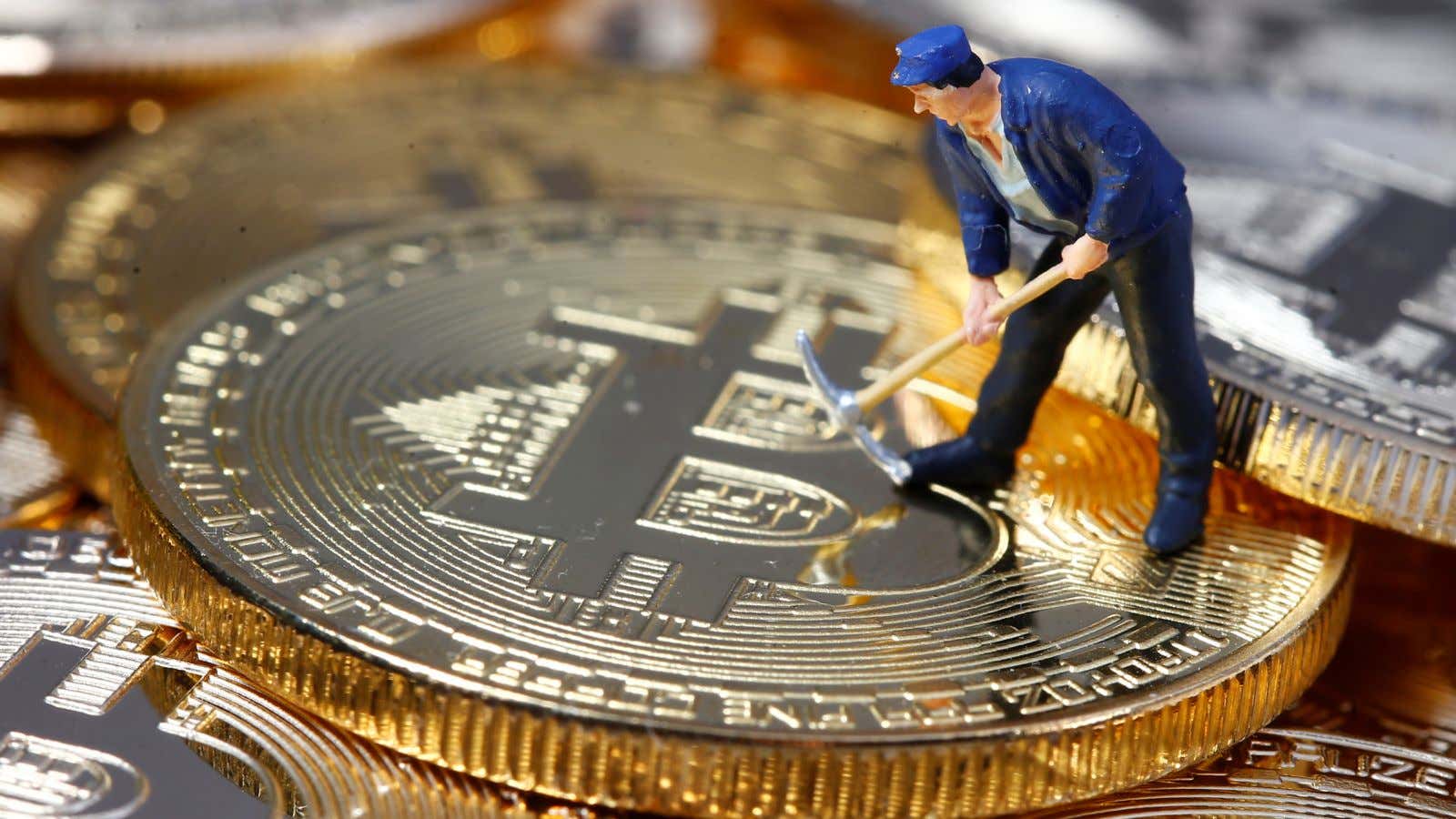A month after India’s central bank accepted that it had cracked down on cryptocurrencies without much deliberation, it has finally spelled out the reasons for its uneasiness with bitcoin and the likes.
The Reserve Bank of India (RBI) is especially concerned about investor protection, the anonymity of transactions, and the cryptocurrencies’ lack of intrinsic value, it told the the Internet and Mobile Association of India (IAMAI) on July 11. The central bank had raised these concerns earlier, too, but only now has it listed them out clearly.
IAMAI, which counts bitcoin exchanges as members, had reached out to the central bank last month suggesting possible ways in which the industry can be regulated to address RBI’s concerns.
In April, the RBI had directed banks to close down all virtual money-related bank accounts by the first week of July. Stunned by the regulator’s move, some exchanges took it on legally. The supreme court, however, told them in May to engage directly with the RBI instead. Earlier this month, the apex court refused to stay the RBI’s April order, but directed it to respond to the suggestions submitted by the exchanges.
The debate
One of the main reasons cited by the RBI for its crackdown is to protect investors and banks from frauds, said a member of the IAMAI who had a copy of the central bank’s responses. “It has said that it wants to ring-fence gullible investors and lenders from scams, several of which have happened internationally.”
There has been a surge in cryptocurrency-related scams in India, too.
However, the exchanges argue that an indiscriminate ban isn’t the way to deal with this. “By limiting transactions via bank accounts and allowing more cash-related transactions, RBI is allowing more people to get duped,” said Praveen Kumar, chairman and CEO of Belfrics, a Malaysia-based exchange with operations in India. “Instead, they need to regulate the exchanges and lay down guidelines that can help prevent these frauds.”
Moreover, frauds happen wherever money is involved, including at banks; it doesn’t mean the system must be choked, said the CEO of a New Delhi-based virtual currency exchange, requesting anonymity.
Another reason cited by the RBI is the anonymity of the transactions and, therefore, the difficulty in tracking the source of money. The firms have refuted this, too, claiming strict adherence to know-your-customer norms to prevent money-laundering. Besides, all transactions are usually carried out via bank account transfers to keep a tab on the money trail.
The RBI has also expressed concerns that cryptocurrencies have no intrinsic value as they are not backed by assets. “This is not entirely true,” said the CEO of another virtual currency exchange, on condition of anonymity. “For instance, in order to run certain computer programs, you can pay using ether. Moreover, as the market matures and more people and institutions start using it, there can be more use cases that can boost its intrinsic value.”
The IAMAI members also rue that the central bank has ignored their suggestions to strengthen the framework. “Even earlier it had laid down similar reasons but refuses to look closely at our recommendations on how it can be addressed,” said one of the cryptocurrency exchange CEOs.
Now, all eyes are on the government panel readying the draft regulations for cryptocurrencies.
